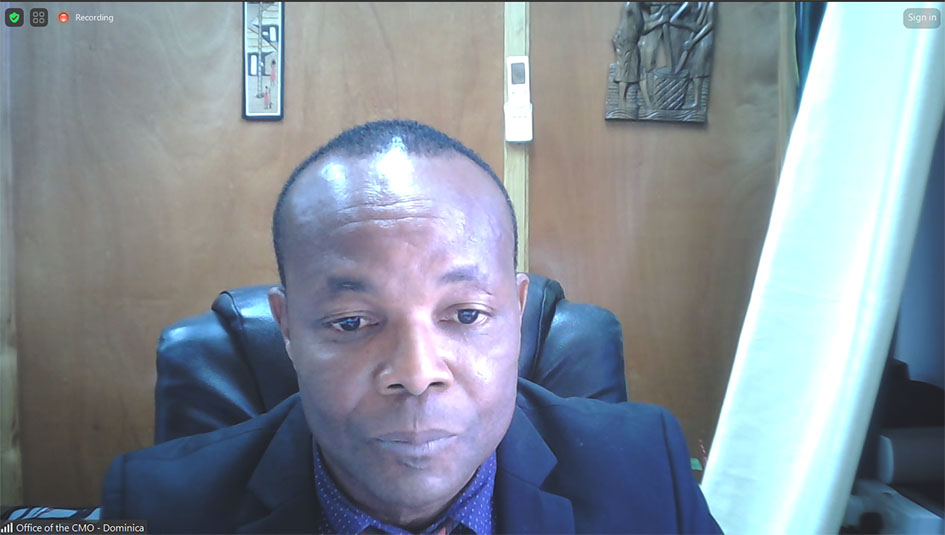-Dominica medical official
The surge in migration of healthcare workers threatens the quality of care and jeopardises health outcomes for the people of CARICOM.
This was the warning issued by Dr. Andy St. Hilaire, Officer in Charge, Office of the Chief Medical Officer, Dominica and Chair of the Meeting of Officials Preparatory to the Forty-Seventh Meeting of the Council for Human and Social Development (COHSOD) held on 11 September.
A release yesterday from the CARICOM Secretariat said that the Policy Brief on the Migration of Healthcare Workers in the Caribbean, a crucial document for consideration by health sector development stakeholders, was presented at the meeting.
The release said that Dr. Hilaire encouraged robust discussion on the policy brief and strongly advocated for the crucial role of collective action in tackling the issue during his engagement with stakeholders at the Meeting. These included Chief Medical Officers, national health officials, representatives from regional institutions and bodies, including the Caribbean Public Health Agency, the Carib-bean Disaster Emergency Management Agency, and the Human Resources for Health Caribbean Com-mission. Regional and international partners, including the Global Fund and Pan American Health Organization (PAHO)/ World Health Organisation (WHO) also participated.
“Coexisting with all the challenges we experience in the health sector is the chronic shortage of healthcare workers within the Caribbean, especially physicians, nurses and midwives,” stated Dr. Hilaire. “The migration of healthcare workers significantly impacts our health systems’ ability to provide quality and timely healthcare services. Therefore, policies to train and retain healthcare workers in the Region must be creative, robust and more responsive to the needs of our healthcare personnel”, he declared.
Dr. Hilaire urged a unified approach by health sector development stakeholders to retain Caribbean healthcare workers.
The migration of healthcare workers policy brief will form a key part of the discussions for CARICOM Ministers of Health attending the Forty-Seventh COHSOD – Health, scheduled for 27-28 September 2024 in Washington, DC, United States of America.
On Thursday, another statement out of the preparatory meeting said that lifestyle diseases such as diabetes and hypertension account for around 76% of deaths in CARICOM.
Tamara Bobb, Program-me Manager, Health Sector Development Programme at the CARICOM Secretariat said Non Communicable Diseases continue to be among the leading causes of mortality and morbidity in the Caribbean.
“Approximately 76% of all deaths in the Region are caused by NCDs”, she said. She also advised that the incidence of crime and violence has increased in the Region, leading to its declaration by Heads of Government as a public health issue in 2023.
The Programme Manag-er highlighted an increase in the incidence of endemic infectious diseases, including Dengue and Malaria. In addition, she noted that Member States have been advised to remain vigilant to the threat of Mpox, which was declared a public health emergency of international concern by the WHO in August 2024.





